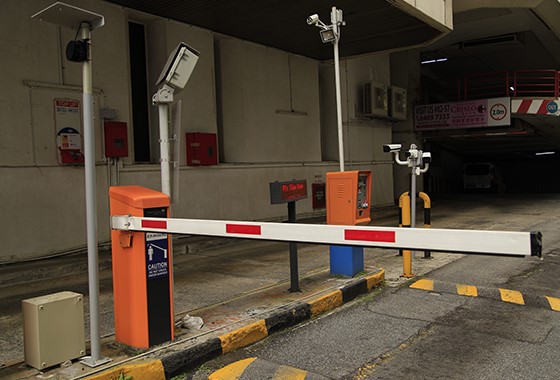Parking can be a frustrating and time-consuming experience for many drivers. Whether you are looking for a spot on the street or in a garage, the search for a parking spot can be a hassle. Fortunately, with the advent of technology, there are many new parking solutions available, including License Plate Recognition (LPR) parking systems. LPR parking systems can make the parking experience more efficient and convenient for drivers, and can also bring many benefits to property owners and managers. In this article, we will discuss the benefits of implementing an LPR parking system.
What is an LPR parking system?
LPR parking ticket machine systems use cameras and software to recognize and capture images of license plates on vehicles as they enter and exit a parking facility. This information is used to determine whether a vehicle is authorized to park in a particular area, and to track the duration of parking.
Benefits for drivers
The benefits of LPR parking systems for drivers are numerous. First and foremost, these systems can save drivers time and frustration by eliminating the need to search for a parking spot. Instead, drivers can simply drive up to a parking facility, and the system will automatically recognize their license plate and open the gate to the designated parking area. This can also reduce congestion on the roads and reduce emissions from cars circling around looking for a parking spot.
In addition, LPR parking systems can also be more secure than traditional parking systems. With LPR, drivers do not have to worry about lost or stolen parking tickets. The system automatically recognizes their license plate, so there is no need for physical tickets or passes that could be lost or stolen. This can provide peace of mind for drivers, knowing that their vehicle is secure while they are away.
Benefits for property owners and managers
LPR parking systems can also provide numerous benefits for property owners and managers. One of the biggest benefits is increased revenue. With LPR, parking facilities can more accurately track parking duration, which can lead to increased revenue from parking fees. In addition, these systems can also reduce the cost of managing and maintaining traditional parking systems, such as ticket machines and gate arms.
LPR parking systems can also provide valuable data to property owners and managers. By tracking license plates, these systems can provide insights into parking usage patterns, such as peak usage times and popular parking spots. This information can be used to optimize parking operations and improve the overall parking experience for drivers.
Finally, LPR parking systems can also improve security for property owners and managers. By tracking license plates, these systems can identify unauthorized vehicles and alert security personnel to potential security threats. This can help property owners and managers to better secure their parking facilities and protect their tenants and visitors.
Conclusion
Implementing an LPR parking system can provide many benefits to both drivers and property owners and managers. These systems can improve the parking experience for drivers by saving time and increasing security, while also increasing revenue and providing valuable data and insights for property owners and managers. As technology continues to advance, LPR parking systems are likely to become even more advanced and efficient, making parking an easier and more convenient experience for everyone.









































